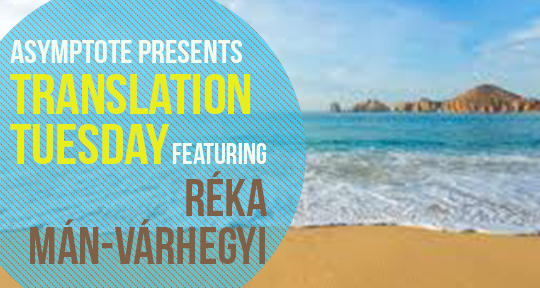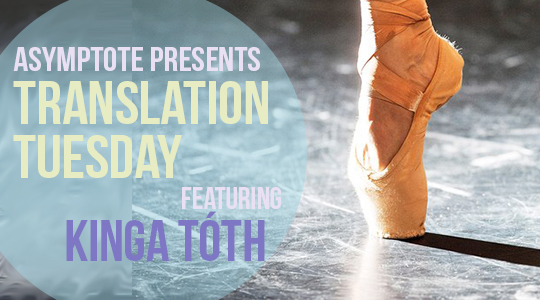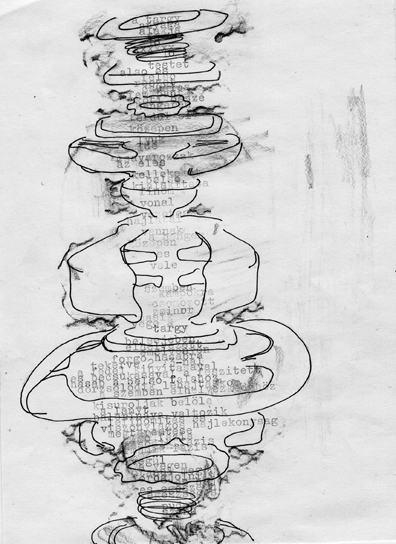Full of dark humor and vibrant details, today’s Translation Tuesday, by Réka Mán-Várhegyi and translated by Owen Good, shows the inner workings of a Hungarian family. Dealing with obesity, sibling relationships, and emerging sexuality, this gripping story captures that uncomfortably liminal time known as adolescence.
‘It’ll be beach weather at the weekend,’ our mum squeaked. ‘Get your swimming costumes ready, we’re going to the lake. Dad, have you checked the batteries in the cooler bag? Does it still work? We’ll not miss it if we don’t buy a new one. No point in wasting money.’
Panni was staring at her hand. I was counting the strips in the rotting wainscot on the dining room wall. We didn’t put up any protest but we didn’t want to go to the lake and they knew it. We didn’t want to lie in the sun in swimsuits, we didn’t want to soak in the water, and, most of all, we didn’t want to gawp at jet-skis. Every summer, jet-skis tore up and down the puddle-sized lake with pornstar-esque girls and boys on them, our classmates, but at least in school they didn’t shriek all day long.
I was born into a fat, hemorrhoidal family as the younger member of fraternal twins. By our teenage years, Panni and I had turned into sluggish potato sacks, we’d become our own parents one size smaller. Later on it became clear that our features weren’t overly similar, but the differences between us were hidden by the fat, just like our parents. When I was seventeen the spare pounds didn’t hurt so much as the fact that I didn’t have any distinguishing features. After class Panni and I often went to the wood, we sat on our coats at the foot of a tree, smoked a cigarette each and scratched our faces with thorns. We both wanted a proper scar. But these were just pathetic thin scratches. They healed in half a day. Especially on my skin—which was positively brown compared to Panni’s milky white—when I wiped the blood off you couldn’t even see them.



